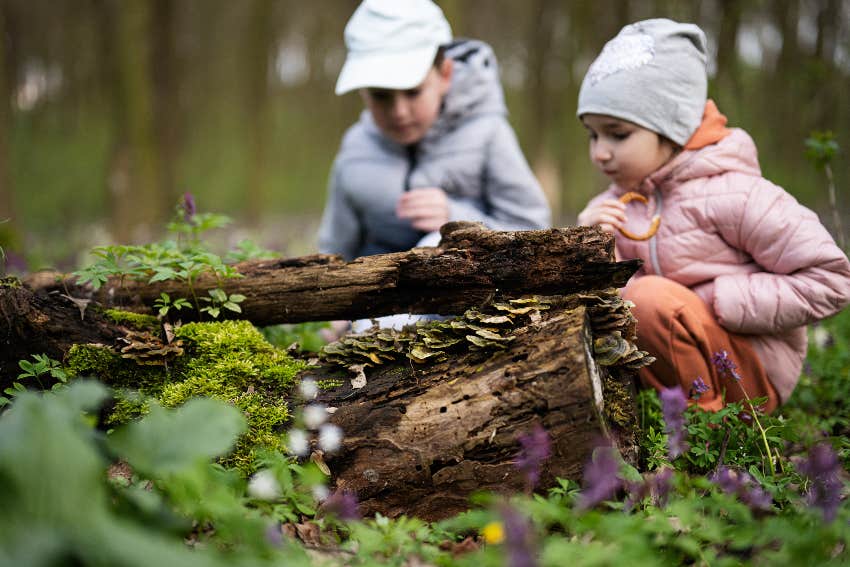Have you ever noticed how a simple walk in the park can turn a bad day into something brighter? Well, it turns out there’s some serious science behind that mood lift! Researchers digging into health outcomes have discovered that kids with access to nature and green spaces tend to be the emotionally strongest. We’re talking about everything from fighting off asthma and obesity to boosting immunity and promoting quality sleep. Now, a recent meta-study reveals that the benefits of nature pack a particularly powerful punch for mental health. This makes me wonder if we should start prioritizing our backyard size over the square footage of our homes! Have we (perhaps foolishly) traded the great outdoors for screen time? Let’s unpack how experiences in nature could be the key to raising happier, healthier kids capable of navigating life’s ups and downs—and why this is a big deal for all of us! To dive deeper, LEARN MORE.
From decreased asthma and obesity to increased immunities and quality sleep, exposure to the outdoors is good for everyone. But a large, growing body of evidence, captured in a meta-study, reveals that experiences in nature have especially big benefits for mental health.
Advertisement
In other words, it might be time that we all thought a little less about the square footage of our homes and more about the size of our yard — or, better yet, adjacency to parks.
Much of the research on the connection between nature and mental health focuses on kids, showing that those who interact with green spaces grow up to be happier and healthier — and those who don’t get that exposure to nature suffer.
A study of over 900,000 children, for example, found that children who grow up without access to green spaces are at a 55 percent higher risk for psychiatric illnesses throughout their lives.
Advertisement
 AS photo family / Shutterstock
AS photo family / Shutterstock
A walk through the woods or a park naturally decreases stress hormones like cortisol and is a buffer against stress, regardless of culture or class.
Advertisement
Furthermore, the more time individuals spend interacting with nature, the lower their risk for anxiety and depression. Some data even suggest nature can help angry dads quell their tempers and lower their blood pressure.
And yet, as Gregory Bratman, a professor of environmental sciences at the University of Washington, and his colleagues found in their recent analysis, the average person’s access to nature and green spaces has sharply declined over generations, as mental health demands have mounted.
One study estimates that 75 percent of natural interactions were experienced by only half of the population. Other research indicates that children spend three times as many hours in front of screens as they do playing outside.
 maxim ibragimov / Shutterstock
maxim ibragimov / Shutterstock
Advertisement
It’s worth noting the researchers found a strong correlation between mental health and socioeconomic status, but also the link between poorer areas and a lack of nature, and that this model could be best applied to closing those green gaps first.
“Some areas in some cities are nature-deprived,” says Bratman. “Eventually, our conceptual framework could be developed and potentially used to help address health disparities in underserved communities.”
The study authors acknowledge that many other important variables contribute to mental health outcomes, such as genetics, that are not to be discounted based on these findings.
Advertisement
Likewise, many aspects of nature can be physically and psychologically devastating that the study didn’t look at, like wildfires, hurricanes, and other natural disasters.
So as much as the findings reinforce how lucky you might be to raise your family near a decent park, they also argue that you all could use more where that came from.
“We can’t make an overarching, blanket statement regarding the degrees of success to which the considerations of proximity to nature and access to natural environments have been integrated into these decisions in specific cases across the country,” Bratman says. “But, we hope that this paper can help to highlight the importance of these considerations.”
Advertisement
Here’s one decision that is very much in your control — in the name of health, make plans to take the family for a stroll in the park this weekend.
Lauren Vinopal is a freelance journalist who writes about health and science. She is a staff writer for MEL Magazine and has appeared in MTV News, Vice, GQ, and more
Auto Amazon Links: No products found.

This will close in 0 seconds
This will close in 0 seconds